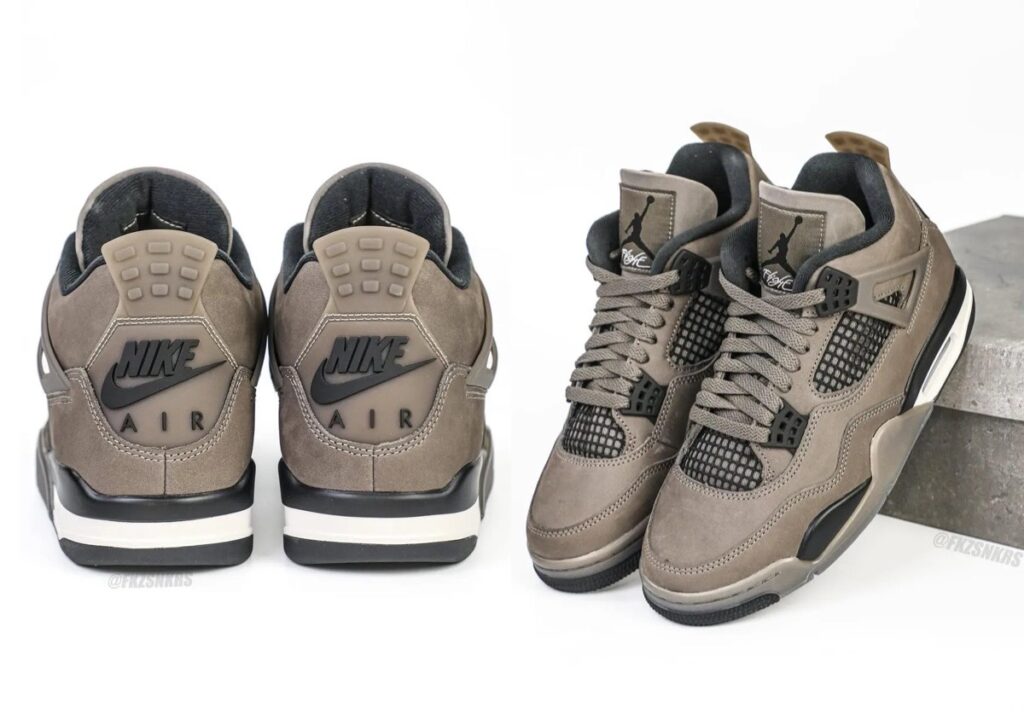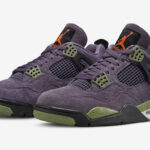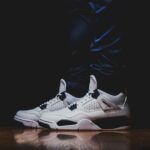“`html
Air Jordan 4 Cave Stone: Unearthing Prices & Deals (Is It Even Real?)
The Air Jordan 4 is a legendary sneaker, first released in 1989 and designed by Tinker Hatfield, and remains a highly sought-after silhouette for its iconic design and cultural significance. The “Cave Stone” colorway, often seen as a custom or concept design, has garnered attention among sneaker enthusiasts. Finding the best price for any coveted sneaker like an Air Jordan 4 can save you a significant amount of money, so understanding the market is key.
Retailer Comparison: The “Cave Stone” Enigma
Here’s the crucial point about the Air Jordan 4 “Cave Stone”: it does not appear to be an official Nike or Jordan Brand release. This means you won’t find it stocked at standard retail stores like Nike, Foot Locker, Finish Line, JD Sports, or other authorized sneaker boutiques with a set retail price (which for most Air Jordan 4s is typically around $200-$220 USD for adult sizes, depending on the specific model like SE, Craft, etc.).
Instead, any “Air Jordan 4 Cave Stone” sneakers you encounter are most likely:
- Custom creations: Made by independent sneaker artists who take an existing Air Jordan 4 (often a general release colorway) and repaint or reconstruct it to match the “Cave Stone” aesthetic.
- Concept renderings: Digital designs or mock-ups that exist online but not as physical products.
- Potentially unofficial or replica products: Sold through less reputable channels.
Because of this, a direct “retailer price comparison” in the traditional sense isn’t possible. If you were commissioning a custom “Cave Stone” Air Jordan 4, the price would be determined by the customizer and would include the cost of the base shoe, materials, labor, and artistic skill. This could range from several hundred to over a thousand dollars.
Resale Market Analysis: Navigating Customs and Concepts
Since the “Cave Stone” isn’t an official release, its presence on typical resale platforms like StockX or GOAT will be non-existent for an “official” version. You might find artists selling their custom “Cave Stone” creations on platforms such as:
- Etsy: A common marketplace for handcrafted and custom items.
- Instagram: Many sneaker customizers showcase and sell their work directly through their profiles.
- Specialist custom sneaker websites/forums: Dedicated communities where artists and buyers connect.
- eBay: While you might find custom sneakers here, diligence is extra important to verify the seller and the work.
Factors affecting the price of a custom “Cave Stone” Air Jordan 4 would include:
- The Customizer’s Reputation and Skill: Well-known artists with a strong portfolio command higher prices.
- The Base Shoe Used: Was an authentic, new Air Jordan 4 used? The cost of this base shoe is a factor.
- Complexity of the Design: Intricate details, special materials, and unique modifications will increase the price.
- Materials Used: High-quality paints, dyes, and any added embellishments contribute to the cost.
- Exclusivity: If it’s a one-of-a-kind piece or a very limited run by the artist.
For officially released Air Jordan 4s, the resale market prices are driven by hype, rarity, condition, and size. Limited collaborations or iconic original colorways can fetch prices many times their retail value.
Tips for Finding Deals (and Navigating Custom Purchases)
Given the “Cave Stone” is likely a custom:
- Research Customizers: Look for artists whose style you like and who have good reviews. Compare their pricing for similar complexity jobs.
- Follow Artists on Social Media: They might announce commission openings, auctions, or special offers.
- Be Clear on Details: When commissioning a custom, ensure you understand what base shoe is being used, the exact design, timeline, and total cost.
- Consider DIY (with caution): If you’re artistic, you could attempt to customize a pair yourself, but this requires skill and the right materials.
For finding deals on official Air Jordan 4 releases:
- Follow Sneaker News Accounts: Stay updated on release dates and restocks.
- Use Retailer Apps: Sign up for notifications from apps like Nike SNKRS, Foot Locker, etc.
- Enter Raffles: For hyped releases, raffles are often the only way to get them at retail.
- Check Reputable Resale Sites: For older or sold-out models, compare prices on StockX, GOAT, and eBay (look for authenticity guarantees). Prices can fluctuate, so watch for dips.
- Buy Pre-Owned: Gently used pairs from trusted sellers can offer significant savings. Ensure they are authenticated.
Authenticity Guide: Spotting Fake Air Jordan 4s
Whether buying a base shoe for a custom project or an official colorway, authenticity is paramount. Here’s how to spot potential fakes (specifically for the Air Jordan 4 model):
- Overall Shape and Proportions: Familiarize yourself with the silhouette of a real AJ4. Fakes often have an incorrect toe box shape, heel height, or overall stance.
- Stitching Quality: Authentic Jordans have neat, consistent, and high-quality stitching. Messy, frayed, or uneven stitching is a major red flag.
- Jumpman Logo: Examine the Jumpman on the tongue and heel tab. On fakes, the proportions might be off (e.g., “lollipop” head, thick limbs, indistinct fingers, or a “butt crack” on the heel Jumpman). The flight script on the tongue should be clear.
- Netting: The plastic netting on the side panels and tongue base should be correctly angled and have a quality feel. Fakes might have flimsy or poorly aligned netting.
- Tongue Tag: The “Flight” script on the tongue tag should be crisp. The inside tag details (production dates, factory codes) should be accurate and well-printed.
- Heel Tab: The heel tab should be made of firm material. The “Nike Air” (on OG-style retros) or Jumpman logo should be well-defined and correctly placed.
- Box and Label: The box should be sturdy with correct colors and branding. The label on the box should have the correct style code, size, colorway name, and barcode. Compare it with official images.
- Smell: Authentic Nikes have a distinct factory glue smell. Overly strong chemical smells can indicate fakes.
- Price: If a deal seems too good to be true for a highly sought-after shoe, it probably is.
- Seller Reputation: Buy from reputable retailers or, on resale markets, from sellers with high ratings and authenticity guarantees.
For a custom “Cave Stone,” you’d also want to assess the quality of the custom work itself – paint application, evenness, and durability.
Conclusion
The Air Jordan 4 “Cave Stone” is mostly a cool shoe idea people make themselves. It’s not usually sold in big Nike stores like other Jordans. If you find one, an artist likely made it special, so it might cost more. For any Air Jordan 4, look around at different shops and online to find a good price. Always check to make sure the shoes are real. Look at the box, how they are stitched, and the logos. This will help you get awesome shoes and not waste your money.
“`



